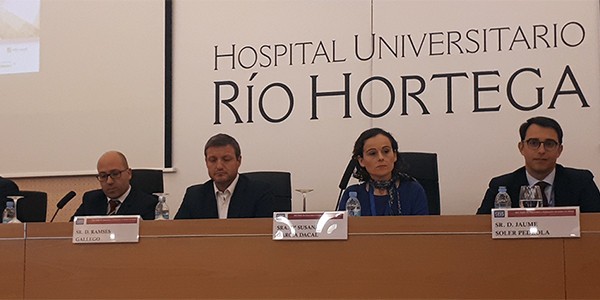Cybersecurity-incident response ideas placing a special stress on data privacy and protection

100 million medical records are at risk of falling prey to cyberattacks. One in four patients has had their healthcare data stolen and 71% of attacks on organizations, over half of them, can be blamed on employees who inadvertently breach the company’s cybersecurity policy. To come up with answers to this, Oscar Riaño, Manager of GMV’s CERT, took part in the Healthcare Data Protection and Security Forum organized by the Spanish Healthcare IT organization (Sociedad Española de Informática de la Salud (SEIS)).
In the words of Riaño “organizations have now reached a sufficient level of maturity to respond to these threats”. If they don’t, “this can be put down to lack of budget or skills”. The strategy to head off these cybercriminals rests on four pillars: “prevention, detection, response and follow-up”. The stark truth is that in the fight against cyberattacks “we are always falling behind”.
The healthcare sector’s proven vulnerability to cyberattacks, its great attractiveness to hackers of this data, highly valuable on the black market and the sheer importance of any theft in healthcare information systems, in view of the fact that their “business” is human health, mean there is an obvious need for contracting cybersecurity services from top suppliers like GMV. Worldwide benchmark projects in which the company is now acting as technological partner include Harmony, which works with the data of hematological malignancy patients from the whole of Europe, and Mopead, to pinpoint Alzheimer cases in the early stage.